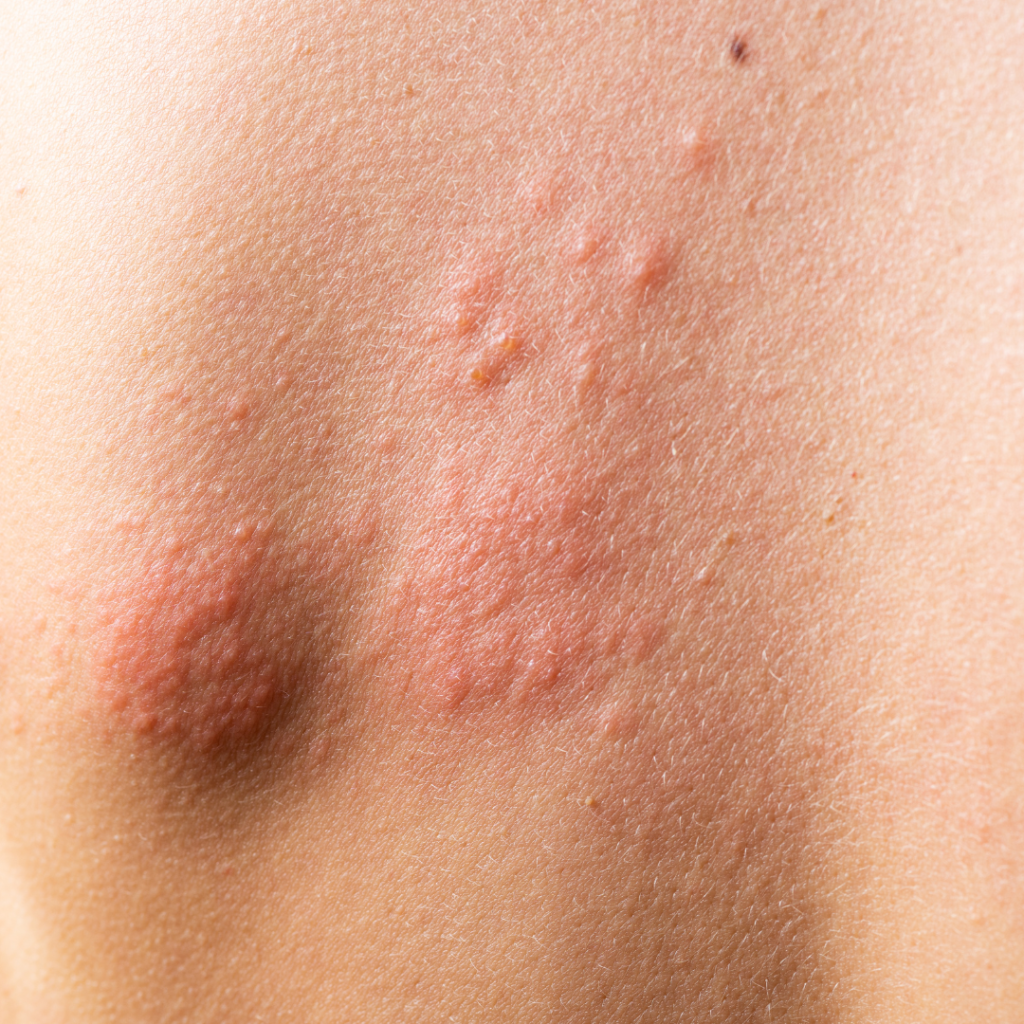
Hives vs Eczema
Hives | Dry Skin | Treatment | Similarities| Eczema | Management
Hives vs Eczema
Hives and eczema are two common skin conditions that can cause a lot of discomfort and impact your daily life. Eczema, also known as atopic dermatitis, is a chronic skin condition that can occur at any age, but is often first diagnosed in childhood. Hives can be caused by allergic reactions and even non-allergic reactions. While both conditions can cause red, itchy, and inflamed skin, there are some key differences between the two.
Can Dry Skin Cause Hives?
Hives are red, itchy welts that can appear on the skin. The causes of hives can be divided into two: allergic and non-allergic. Some of the allergic causes of hives include:
- Food
- Medications
- Insect bites
Non-allergic causes of hives can be:
- Heat
- Cold
- Stress
Dry skin is also a common cause of hives. When the skin becomes dry, it can become itchy and irritated, which can cause hives to appear. Some people may also develop hives due to a viral or bacterial infection. In rare instances, hives may be a symptom of an underlying autoimmune disorder. An allergist can help determine the cause of hives with examinations and tests.

Hives Treatment
Hives are commonly treated with antihistamines, which block the action of histamine. This is a chemical that causes the itching, swelling, and redness in your skin. There are over-the-counter antihistamines and if those don’t work your doctor may give you a a prescription antihistamine.
In addition to antihistamines, other treatment options for hives include:
- Corticosteroids
- Topical creams and ointments
- Phototherapy
Identifying the triggers of your hives is important in treating this condition. In some cases, hives may be caused by an underlying condition. Treating this underlying cause may be necessary to alleviate your hives.
It is always recommended to speak to your healthcare practitioner about your hives. They can help you determine the cause and create a personalized treatment plan for you.
Are Hives And Eczema Related?
Hives and eczema are not directly related, however, their symptoms can be very similar. Both conditions can cause red, itchy, and swollen skin. Additionally, hives and eczema are often triggered by the same factors such as allergies, weather, and stress.
A key difference that is important to note when comparing hives vs eczema is the duration of these skin conditions. Hives are often caused by an allergic reaction whereas eczema is a chronic condition. While eczema is more common in children, it can affect adults as well. Some people with eczema may even experience hives as a symptom.
Eczema Rash
The rash associated with eczema is typically red, scaly, and inflamed. It can appear anywhere on the body, but it is most commonly found on the face, scalp, chest, and limbs. In children, eczema often appears on the face, scalp, and trunk. In older children and adults, it is more likely to appear on parts of the body where the skin folds. These areas include the elbows, behind the knees, ankles, and neck.
Eczema rash can vary in appearance depending on the stage of your eczema. In the early stages, you may have small red bumps that are very itchy. As the rash progresses, these bumps may become larger and more inflamed. In the later stages, the rash may become dry, scaly, and thickened. Your skin may also become dark in color and may have a leathery texture.
Eczema Treatment
Eczema can be a very uncomfortable and distressing condition, and the itching can be severe. When you scratch your eczema rash, you can irritate it further. In severe cases, scratching the rash can even lead to an infection. It is important to avoid scratching your rash and you may want to pat your skin to soothe the itch instead.
Eczema treatment typically involves topical corticosteroids to reduce skin inflammation. However, this can cause side effects, especially with long-term use. If you want to avoid topical steroid withdrawal, you can find natural therapeutic options for eczema in pharmacies.
Since eczema is a chronic condition, it’s symptoms can come and go. Eczema flare-ups can be triggered by a variety of factors such as the weather, stress, household products, and even certain foods. Identifying and avoiding your triggers is important in managing eczema.
Speak to your family doctor or dermatologist to come up with a eczema management plan tailored to your symptoms and lifestyle.
References:
Enticare: Eczema Vs Hives: What’s the Difference?
Healthline: Eczema Vs. Hives: What’s the Difference?
Medical News Today: Eczema Vs. Hives: Differences
Family Allergy & Asthma: Skin Allergy
Greatist: What’s the Diff Between Eczema and Hives?
